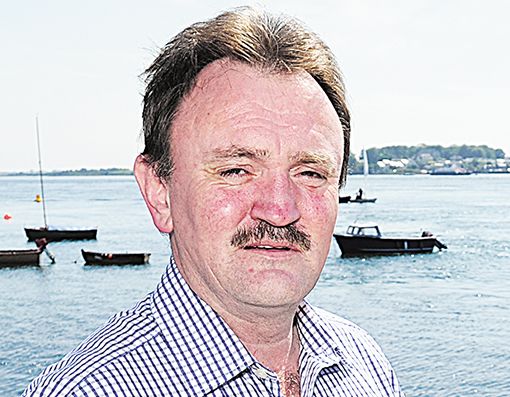15-hour wait for ambulance
15-hour wait for ambulance
1 September 2021

A PORTAFERRY politician has claimed that a Ballygalget couple, who were involved in a car crash last week, waited 15 hours for an ambulance.
Cllr Joe Boyle said that he was extremely concerned about the length response time following a two car crash on the Ballyphilip Road at around 4.45pm last Tuesday.
The PSNI said there were no serious injuries reported at the scene.
The Northern Ireland Ambulance Service (NIAS) confirmed that an ambulance was sent to the couple’s home for 9am the following day and that they were in contact the couple during the night.
Cllr Boyle said he understood the pressures on ambulances and hospitals at the moment and praised the work of NHS workers.
However, he added: “It’s well known that living in the Ards Peninsula residents more often than not will invariably be faced with long waits for an ambulance and that Portaferry is factually the location in the entire North whereby it is longer that anywhere else to receive an Ambulance Category B call out.
“In this particular road traffic accident, there was a level of discomfiture and pain sustained with painkillers taken during the lengthy wait before being checked out in hospital and released some hours later.”
He said the incident demonstrated how “historically the provision of health services can at times be somewhat limited and that is something that those involved with the provision of our health services should be giving a greater interest and resources to in trying to address this ongoing and increasing problem.”
A spokesman for the Ambulance Service apologised to the couple “for the significant delay in responding to the incident. “It is not the service we aim to provide,” he said.
The spokesman said the couple were triaged as requiring a Category 3 Response of 120 minutes and were taken to their home to await the arrival of the ambulance.
The spokesman said: “NIAS crews remained busy responding to more urgent calls throughout the night and were only able to respond to this call at 08:23 on August 25. Throughout this period, and where possible, clinicians within the Emergency Control Centre remained in contact with the patients through a call back process.
“On arrival, the NIAS crew assessed both patients who then declined ambulance transport to hospital.’
The spokesman pointed out the “extreme pressure” the service was under and asked for patience from those calling.
“NIAS operates a clinical triage system to ensure that the most clinically ill or urgent calls receive the most immediate response,” he said.
“We have asked the public to consider alternatives to 999 including own transport to hospital to assist in dealing with the pressures we are currently experiencing.
“NIAS is facing increased challenges in maintaining planned levels of cover across all of our Divisions across Northern Ireland. Regrettably, this will mean that on occasions our response times to some calls will be delayed – and on occasion, by many hours.
“We will, because we need to, continue to target our resources at the most seriously ill or injured to ensure they receive the fastest and most appropriate response to suit their clinical need. “However, NIAS envisages that response times to those patients whose clinical need is less urgent will be longer than might be expected by patients and their carers. At all times, NIAS will seek to respond to all calls in the shortest possible time.”
The spokesman stressed that staffing levels had been impacted with staff being off due to ordinary sickness or Covid-19.
NIAS Chief Executive Michael Bloomfield appealed for support from public representatives and the community in general to ensure that ambulances remain available to respond to life-threatening emergencies.
“I appreciate the genuine concern of community and political representatives when informed of shortages in a particular area. However, I would like to reassure all stakeholders that we will continue to manage our available resources in a way which best serves the interests of patients and staff.”
He said there had been an increase in the number of calls to its Control Centre asking for estimated times of arrival of an ambulance, for which they are waiting.
“Whilst I understand the concerns felt while waiting for an ambulance, I would ask that callers do not phone back unless the condition of the patient has deteriorated or there is no longer any need for an ambulance. These calls are putting unnecessary additional pressure on our control centre. The 999 system is for life-threatening calls only.
“We would ask you to remember that not all 999 calls require an immediate response and that if you experience delays to, please, remain patient. Our crews will be with you as soon as possible and will treat you with the utmost care, compassion and respect.”


